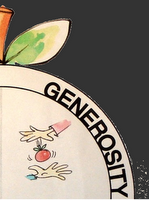
What is DRM?
DRM vendors and publishers coined the term digital rights management to refer to the types of technical measures discussed here, applying it only to digital media (and analog media that has been released in digital form). There is a long history of objection on the part of copyright holders (often music distributors or broadcasting companies) to copying technology of any kind. Examples have included player piano rolls (early in the 20th century), audio tape recording (after WWII), video tape recording (eg, in the famous Betamax case in the US), etc. Digital copying raised concerns to a higher pitch. While analog media loses quality with each copy generation, and often even during normal use, digital media files may be copied an unlimited number of times without degradation in the quality of subsequent copies. Many online music stores, such as Apple’s iTune' Store, as well as certain e-book producers, have adopted various DRM schemes in recent times. In recent years, a number of television producers have begun demanding implementation of DRM measures to control access to the content of their shows in connection with the popular TiVo system, and its equivalents.
In order to complete this definition, I am going to present the digital Millennium Copyright Act, its actors and its implications.The Digital Millennium Copyright Act (DMCA) is a United States copiright law passed unanimously on May 14, 1998, that criminalizes the production and dissemination of technology that allows users to circumvent copyright protection methods, rendering all forms of DRM-stripping and circumvention software illegal.
The arrest of Russian programmer Dimitry Sklyarov in 2001, for alleged infringement of the DMCA, was a highly publicized example of the law's use in preventing the further development of anti-DRM measures. While working for Elcomsoft, he developed The Advanced eBook Processor, an application that allowed authorized users to strip usage restriction information from protected e-books. Sklyarov was arrested in the United States after presenting a speech at DEF CON, and subsequently spent several months in jail.
The DRM has a certain influence in recordings and video.
Several DRM schemes have been implemented. Many see them as "abuse" of copyright (often called eSlavery in Europe); DRM proponents have seen them as a "reasonable balance of consumer concerns and artist rights." This is the first known instance where a publisher has enforced DRM on private data, rather than just data copyrighted by the publisher.The PlayStation 2 CD-ROM format games are protected and cannot be copied with normal copy software. Curiously, the DVD-ROM format games doesn't have this type of protection. The Xbox 360 games has advanced security code which prevents copying of the games. The problem is that DRM affect most legitimate purchasers.









